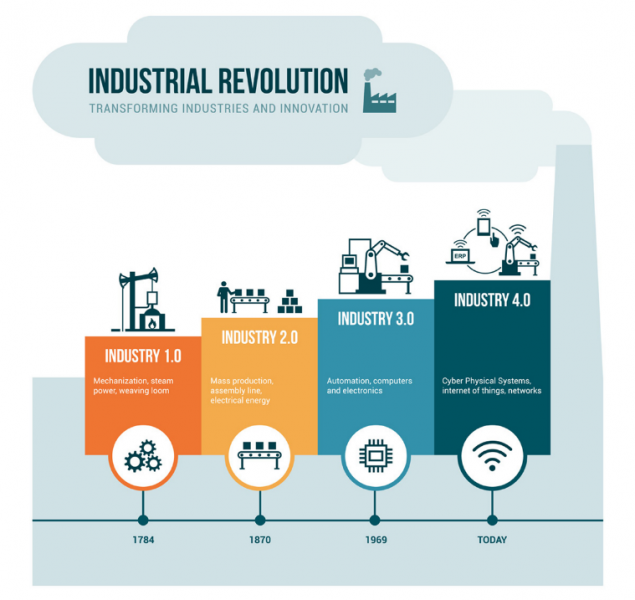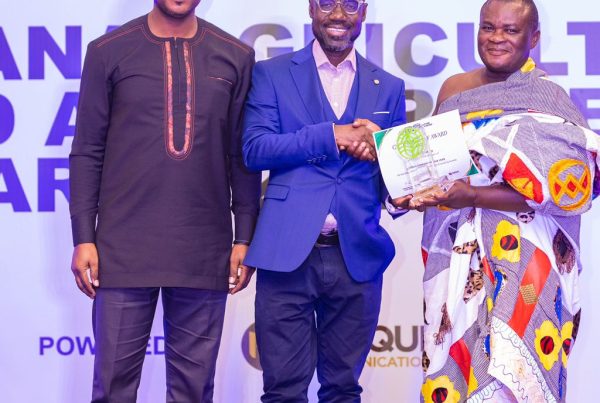By: Daniel Asare-Kyei, PhD
Chief Executive Officer, Esoko
Big data is moving into agriculture in a big way and its moving with the speed of the light. Before we delve into why Big Data is going to change the face of Agriculture around the world including Ghana, let’s look at some of the numbers of Ghana’s agricultural sector.
Ghana’s Agriculture in Numbers
In Ghana, the agricultural sector has been a major driver of poverty reduction and dominates the livelihoods of rural households; 71% of rural households are engaged in agricultural activities. Agricultural land area in Ghana constitutes 57.1% of the total land area; however, only 57.6% of the arable land is currently cultivated and the potential for growth is enormous. About 90% of farm holdings are less than two hectares in size. Incomes of these Smallholder Farmers (SHFs) remain stubbornly low, largely due to low productivity levels resulting from threats of increasingly climate variability and droughts and economic stressors such as high cost of purchased inputs, lack of access to credit, limited access to mechanization services as well as high post-harvest losses and lack of market information on the value of their crop, among other factors. Access to and proper use of inputs such as fertilizer and pesticides are key to increasing productivity. However, input usage among smallholders in Ghana is low. In fact, at an average of 17.5 kg/ha, fertilizer usage in Ghana is among the lowest in the world. The Government’s Planting for Food and Job program and other initiatives are changing the narratives, but we still have a long way to go. Among the reasons for low input usage are the high costs of inputs and lack of access to capital to procure inputs. Only 40% of Ghanaian adults over 15 years old have bank accounts and those with formal savings schemes are estimated to be only 19%. A mere 8% of rural households in Ghana had access to credit for financing agriculture and crop and life insurance programs that could make these poor farmers more resilience in the face of these climate, economic and social stressors and threats are virtually non-existent.
At the same time, Ghana has one of the highest rates of mobile phone penetration in Sub-Saharan Africa, with more mobile phones than there are people (over 128% of mobile voice penetration).
Possibilities of Big Data in Agriculture
 Africa missed the three industrial revolutions that changed the world. This explains why the continent is still suffering from poverty and deprivation. We cannot afford to miss the 4th industrial revolution which is being shaped by rapid advancements in Artificial intelligence, machine learning, block chain, Internet of Things (IoT) etc.
Africa missed the three industrial revolutions that changed the world. This explains why the continent is still suffering from poverty and deprivation. We cannot afford to miss the 4th industrial revolution which is being shaped by rapid advancements in Artificial intelligence, machine learning, block chain, Internet of Things (IoT) etc.
Underlying all these innovations is Big Data which essentially deals with extremely large data sets that may be explored and analyzed computationally to show patterns, trends, and associations, especially relating to human behavior and his interactions with the physical environment.
In Agriculture, big data will be used to better understand farmer’s behavior in relation to the crops he grows and field conditions. Measuring field conditions such as soil moisture, nutrients, PH, temperature and rainfall and triangulating that with prices of inputs and outputs will be revolutionary in changing how farmers use labour, buy inputs and optimize their production practices with the objective of optimizing profits and increasing income. This computational outcome from Big Data combined with AI will change the way we farm, harvest crops, sell and even eat the harvested crop. Indeed, the 4th industrial revolution is a data revolution and the future is going to be owned by those who have the data and those who can make use of the data.
To bring it home and take cursory tour into the future of Big Data and Agriculture we see this scenario. Within the 21st century, to promote sustainable agriculture, a completely digital farmer will have his farmland mapped with Mobile GIS even before the crops are seeded by drones or planted by robots which also apply fertilizers, crop protection chemicals and weedicides during planting. Such a farmer will have sensors mounted at different sections of the farm that track soil moisture, land surface temperate as well as air temperature, relative humidity etc. This data is fed in real-time to the farmer’s mobile phone through what has become known as the Internet of things and powerful algorithms running at the background with AI engines computes patterns, reveal trends and show crop growth anomalies. The whole farm becomes modelled on the farmer’s hands and the farmer can remotely control crop growth based on the real- time data fed to his mobile phone. Whenever, a section of the farm shows signs of water stress or nutrient scarcity or even pest or disease infestation, the farmers is alerted in real-time through powerful algorithms analyzing all these “big data” and recommend appropriate solution. Such a recommendation is site specific and take into considerations the potential market value of the crop, cost of inputs etc. and state of the environmental conditions. The farmer could even automate a response mechanism that sends signals to robotic controls to move to the exact location and fix the problem either by applying fertilizers or water or control pests and diseases. It’s such preciseness of recommendations enabled by Big Data that eventually makes agriculture sustainable and profitable even to the smallholder farmer cultivating soybean in Savelegu.
Upon harvesting, the complete digital farmer could be operating in a closed ecosystem with identified off-takers in a structured market system. The farmer is paid through a smart card that is also linked to the production information which optimizes selling prices and help the farmer negotiate better with the off takers. The farmer may be paid digitally through the smart card or have the money sent to his mobile wallet. In a cashless ecosystem, the farmer never handles cash but can order for the next season inputs through the same card system. The farmer walks to the nearest financial institution, shows his smart card and the banking officer who knows little about agriculture could swipe the farmer’s card onto its data system to reveal the farmer’s credit score. The digital farmer is given credit and a series of notifications are sent to input companies who delivers the farmers inputs. Ultimately, Ghana’s rural folks who currently are not integrated into the formal economy becomes fully digitally and financially included. This is the means by which the whole society gets lifted out of poverty and then we can say indeed, agriculture is the mainstay of the economy because 71% of our rural compatriots who are engaged in this sector can now be tracked by tax authorities whilst other service provides target them to sell a whole range of consumer goods and services.
The possibilities of big data powered by large algorithms in promoting sustainable agriculture is endless and even at this stage, our finite minds cannot fathom all the possibilities that may exist.
Embracing the 4th industrial revolution through “Agritech”
Having missed the first three industrial revolutions, we need to embrace this new age with religious zealousness. It doesn’t matter whether you believe in it or not. As Africans, we gave the world its first civilization and even went ahead to populate the entire unknown places of planet earth. Somehow, we folded our hands and watched the first three industrial revolutions passed by, choosing not to believe in them but rather putting our faith in needless religious ceremonies. we cannot afford to miss this train for it may well be the last train.
Fortunately for us, it seems to me we have finally woken up from our years of mental and economic slumber. There are many young Ghanaians and Africans in general who now believe that the future lies in data and digitization. We are now moving towards the knowledge economy and no longer believe in the raw material-based economy which were callously enforced by our colonizers. These young people who are starting businesses in what we now call “Agritech” companies need to be given direct support through deliberate Government programs designed to encourage further innovation and scalability. These start-ups as well as all the growth stage companies like my own Esoko needs to run faster than we have ever done to keep up with the rapidly evolving mantra of digitization and data science. In doing so, we must learn to cooperate and work together. Developing several agritech entrepreneurs in close succession raises some questions regarding the commercial sustainability of these enterprises. Some have argued that with the many entrepreneurs, each of them tackling one or two challenges within segments of the value chain in a market like Ghana could lead to fragmentation and hurts the businesses’ ability to scale.
Whilst we think about this potential threat to the businesses ability to scale beyond Ghana, we must also remember that agriculture cannot be sustainable and run profitably without the total embrace of big data, digitization, AI and Internet of Things. Ghana and African’s in general cannot, and must not, for the 4th time, miss this train.


